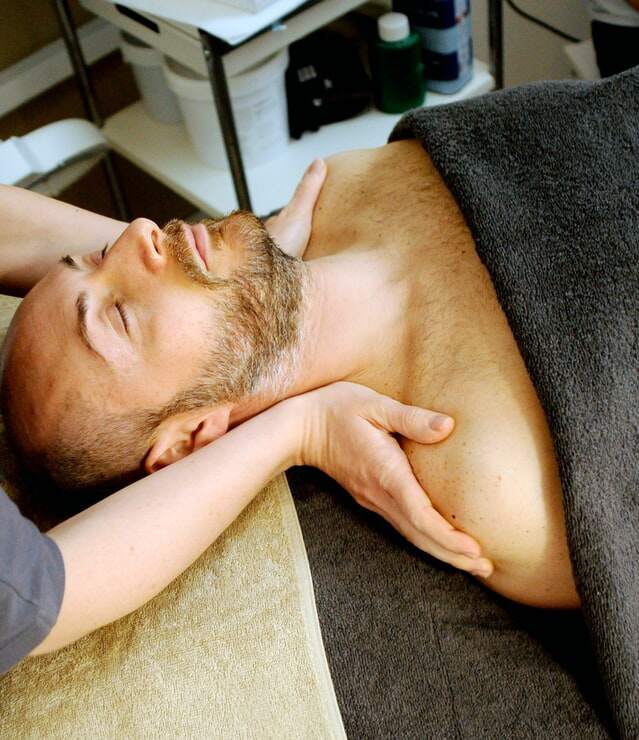Is Massage Good For Chronic Fatigue Syndrome?
Living with Chronic Fatigue Syndrome (CFS) can feel like moving through life with the brakes on. The unrelenting exhaustion, muscle aches, and brain fog often make even simple tasks overwhelming. Because the condition is still widely misunderstood and misdiagnosed, many people struggle to find treatments that bring real relief. One therapy that has been gaining attention is massage. But is massage actually good for chronic fatigue syndrome—or could it make symptoms worse? In this article, we’ll explore how massage fits into CFS management, what the research says, and how different techniques may (or may not) help those living with this challenging condition.
Even though Chronic Fatigue Syndrome is fairly widespread, it still doesn’t always get the recognition it deserves from healthcare providers. Many patients face skepticism or dismissal when they describe their symptoms, which can add another layer of isolation to an already exhausting condition. That’s part of why people often turn to complementary approaches like massage, searching for relief where traditional medicine falls short.
What Is Chronic Fatigue Syndrome?
Chronic Fatigue Syndrome (CFS), also known as myalgic encephalomyelitis (ME) or chronic fatigue immune dysfunction syndrome, is a long-term illness defined by overwhelming fatigue that isn’t improved by rest. A hallmark feature is post-exertional malaise—a worsening of symptoms after even mild physical or mental effort. Other issues, like pain, sleep disturbances, and cognitive difficulties, frequently overlap.
The condition has been documented for centuries—Florence Nightingale is thought to have lived with it—and over the years it has picked up various labels, from “neurasthenia” in the 19th century to the dismissive “yuppie flu” in the 1980s. Today, while the terminology has evolved, the struggle for better understanding and effective care continues.

 CFS can cause extreme exhaustion that lasts for more than 24 hours after physical or mental activity. Other severe symptoms of the disorder include joint pain, cognitive impairment, headaches, sore throat, and tender lymph nodes. People suffering from CFS experience an overwhelming feeling of being ‘unwell’ or have difficulty performing everyday tasks due to their symptoms. Treatment usually involves lifestyle changes such as getting enough sleep, eating healthy foods, and exercising regularly; however, medications may be prescribed depending on the severity of the illness. In some cases, psychological therapies are beneficial in managing chronic fatigue syndrome.
CFS can cause extreme exhaustion that lasts for more than 24 hours after physical or mental activity. Other severe symptoms of the disorder include joint pain, cognitive impairment, headaches, sore throat, and tender lymph nodes. People suffering from CFS experience an overwhelming feeling of being ‘unwell’ or have difficulty performing everyday tasks due to their symptoms. Treatment usually involves lifestyle changes such as getting enough sleep, eating healthy foods, and exercising regularly; however, medications may be prescribed depending on the severity of the illness. In some cases, psychological therapies are beneficial in managing chronic fatigue syndrome.
Who Gets Chronic Fatigue Syndrome
CFS affects an estimated one million people in the US. Although it is thought that only 20% of cases are diagnosed. Anyone can get CFS, but it’s most commonly seen in women between the ages of 40 and 60 years old. However, that may just be a reflection of those who seek help.
Many people with CFS have had prior physical activity or exercise-related illnesses such as postural orthostatic tachycardia syndrome (POTS). It’s also common for those with autoimmune diseases, such as encephalomyelitis chronic fatigue syndrome (ME/CFS), to develop symptoms of CFS.
What Causes Chronic Fatigue Syndrome?
When it comes to CFS, the “why” is still a mystery. Researchers agree there isn’t just one cause, but rather a tangle of factors—immune system quirks, viral infections, hormonal shifts, sleep disturbances, and even genetic predispositions. The CDC puts it simply: the exact cause (or causes) of CFS are not yet known.
But one thing is clear: the body’s stress-response systems, blood flow regulation, and brain chemistry all seem to be involved. And this is where massage starts to sound less like a luxury and more like a practical tool for support.
HPA Axis Dysfunction: The hypothalamus, pituitary, and adrenal glands work together to regulate stress hormones. In many people with CFS, this system gets out of balance, leaving cortisol levels unusually low. Massage has been shown in studies to help regulate cortisol and reduce stress hormones—offering a natural way to calm this overworked system.
Blood Pressure & Circulation Issues: Some patients experience neurally mediated hypotension, meaning the brain doesn’t send strong enough signals to keep blood vessels properly constricted. This results in dizziness, fatigue, and poor oxygen delivery. Massage can improve circulation, dilate blood vessels in a healthy way, and encourage better blood flow, which may ease these symptoms.
Neurotransmitter Imbalances: Recent findings show unique proteins in the cerebrospinal fluid of CFS patients, hinting at disrupted neurotransmitter activity. While science is still catching up, massage has been linked to increased serotonin and dopamine levels—neurochemicals that support mood, sleep, and overall wellbeing.
In short, while the exact root of chronic fatigue syndrome hasn’t been nailed down, we do know many of its problem areas overlap with things massage directly influences: stress regulation, circulation, and nervous system balance. That makes massage a compelling option for anyone looking to manage symptoms more holistically.
Signs and Symptoms of Chronic Fatigue Syndrome
Chronic Fatigue Syndrome (CFS), also known as myalgic encephalomyelitis (ME), shows up in frustrating and often unpredictable ways. The core issue? A bone-deep exhaustion that lingers for at least six months and refuses to lift, even with plenty of rest. But fatigue is just the tip of the iceberg.
People with CFS often deal with:
- A sharp drop in stamina after physical activity
- Dizziness or feeling faint when standing up
- Muscle and joint pain (without obvious swelling)
- Headaches that feel “different” from past ones
- Irregular heartbeat or palpitations
- Nausea, night sweats, or jaw pain
- Unrefreshing sleep—waking up tired no matter how many hours were logged
- Cognitive struggles like memory lapses or brain fog
- Worsening of symptoms after even minor exertion (post-exertional malaise)
CFS can look a lot like other conditions such as fibromyalgia, IBS, or even thyroid issues, which makes diagnosis tricky. And the impact is more than physical. When daily tasks feel impossible and the brain won’t cooperate, it’s no surprise that anxiety and depression often come along for the ride.
This is where supportive care, including massage therapy, can make a real difference. By helping ease muscle tension, calm the nervous system, and improve sleep quality, massage directly targets some of the symptoms people struggle with most.

How Is CFS Diagnosed?
Diagnosing CFS is a process of patience and persistence. There isn’t a single test that says “yes, this is it.” Instead, doctors piece together the puzzle based on medical history, symptoms, and by ruling out other possible conditions.
The CDC requires someone to have disabling fatigue plus at least four additional symptoms (like brain fog, sore throat, joint pain, or unrefreshing sleep) lasting more than six months. Blood work, imaging, and thyroid testing often come first to make sure something else isn’t causing the exhaustion.
For patients, this can feel like a long and sometimes frustrating road. And while a diagnosis can provide clarity, it doesn’t always come with a simple solution. This is why many people look beyond standard medical care to therapies like massage, yoga, or acupuncture—treatments that help manage symptoms and improve quality of life, even if they don’t “cure” the condition.
Treatment Options for Chronic Fatigue Syndrome
There’s no magic pill for CFS, but there are many ways to manage symptoms. Common approaches include:
- Activity pacing: balancing rest with light movement to avoid overexertion
- Gentle exercise and stretching: yoga, tai chi, or short walks
- Stress reduction: therapy, mindfulness, or relaxation practices
- Dietary support: nutrient-rich meals and hydration
- Targeted medication: for specific symptoms like sleep problems, pain, or dizziness
What’s important to note is that bed rest is not recommended. In fact, staying still for too long can actually make muscles weaker. Instead, treatment plans focus on small, manageable changes that give the body a chance to recover without pushing it into relapse.
And increasingly, massage therapy is being recognized as a supportive treatment that checks several boxes at once: it reduces stress, loosens tight muscles, calms pain, and encourages deeper, more restorative sleep.


Is Massage Good for Chronic Fatigue Syndrome?
This is the question most people want answered—and research, plus real-world experience, suggests the answer is yes. Massage may not cure CFS, but it can help relieve many of the day-to-day challenges that make the condition so draining.
Here’s how massage therapy helps with chronic fatigue:
- Improves circulation: Better blood flow means more oxygen and nutrients reach tired tissues.
- Calms the nervous system: Massage encourages the body’s “rest and digest” mode, reducing the overactive stress response common in CFS.
- Supports sleep quality: Many people report deeper, more refreshing sleep after regular sessions.
- Eases muscle and joint pain: Gentle techniques can relieve stiffness and tension without overwhelming the body.
- Boosts mood: Massage has been shown to increase serotonin and dopamine—neurochemicals that support mental health.
Massage also fits beautifully into the pacing strategy many people with CFS use. Rather than a strenuous activity that risks worsening symptoms, massage offers a way to support recovery while staying within safe energy limits.
The key is working with a trained massage therapist who understands CFS and can tailor sessions—sometimes shorter, always gentler—to the client’s energy levels. Over time, massage can become a steady, reliable tool for feeling more comfortable in your body.
Chronic Fatigue Syndrome is complex, frustrating, and still not fully understood. But while medicine searches for clearer answers, people living with it don’t have to sit and wait. Supportive therapies like massage offer real relief for symptoms that otherwise steal joy and energy from everyday life. PUB
From easing pain and tension to improving sleep and calming the nervous system, massage therapy has a unique ability to meet CFS patients right where they are—providing comfort, restoration, and a little more breathing room in a life that often feels restricted.
If you’ve been living with CFS and wondering whether massage could help, the evidence is promising. With the right therapist and the right approach, massage can be more than relaxation—it can be a cornerstone of managing chronic fatigue.





